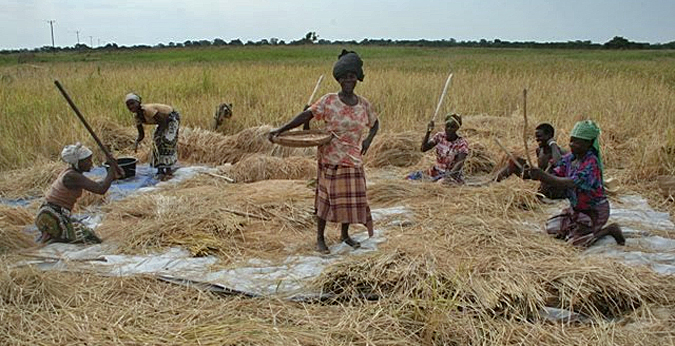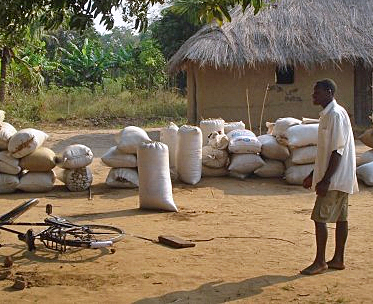Royal HaskoningDHV leads irrigation improvement project for 6,000 rice farmers, Mozambique

The Mozambique Ministry of Agriculture has awarded a Royal HaskoningDHV-led consortium the 5.4 million USD Irrigation Services Provider contract which entails the design and implementation of a 3,000 hectares rice irrigation project.
The World Bank-funded Sustainable Irrigation Development Project (PROIRRI), which will run for six years, seeks to increase small-scale agricultural food production and raise farm productivity in central Mozambique.
The consortium consists of Royal HaskoningDHV, Dutch Wageningen University & Research centre, South African engineering firm Umhlaba, Mozambican engineering firm Resiliência, Mozambican NGO Kulima and Mozambican NGO Eco-Micaia.
Increase harvest frequency
As a result of the project, food production will increase from once a year harvest to one and a half harvests a year. By the end of the project, rice yield per hectare will increase from the current one ton a year to four tons a year. Considering the 3,000 hectares, the project will result in 12,000 tons of rice production per year.
 Benefit for 6.000 farmers
Benefit for 6.000 farmers
Royal HaskoningDHV will design and implement new and rehabilitated irrigation schemes and improve existing irrigation infrastructure for the benefit of six thousand small-scale farmers.
PROIRRI project manager at the Mozambique Ministry of Agriculture Mozambique Mr Eugénio Nhone said: "With this project we aim to promote and ensure self-employment, higher production, increased productivity and sustainability of the rice crop, while guaranteeing food security and a regular market for rice.”
Other benefits include reducing carbon footprint, energy efficiency, job creation and skills transfer.
New irrigation technologies
The project is designed to organise producers and identify markets for the sustainably produced rice. Mr Manuel Jossefa, agricultural sociologist at Royal HaskoningDHV, explains: "Where appropriate, new technologies and applications of existing irrigation technologies will be incorporated, bearing in mind that the beneficiaries are small producers using manual labour. This limits the use of mechanisation for example.
The project has many challenges, not least the long distances between centres and confirming land rights to small farmer associations, which involves establishing links with various stakeholders".
The project will be implemented at district level and considers all aspects related to rice production, harvesting and post-harvesting processing including sale.
The project is expected to run until 2017 and will be concentrated in the provinces of Sofala and Zambezia.
This news item was originally published on the website of Royal HaskoningDHV.
Also read on this website
● Dutch consortia win two demand-led irrigation projects in Mozambique, 2 May 2013
More information
Royal HaskoningDHV
Amersfoort, the Netherlands
+31 88 348 20 00
www.royalhaskoningdhv.com



